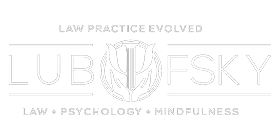Typical Legal Issues Faced by Psychotherapists and Psychologists
Psychologists and psychotherapists are entrusted with the mental health and well-being of their clients. As professionals, they must adhere to strict ethical guidelines to maintain the integrity of their practice and the trust of their clients. In California, the Board of Psychology and the Board of Behavioral Sciences oversee the ethical conduct of psychologists and psychotherapists, respectively. Both professionals can face ethical charges for various reasons, which may lead to disciplinary actions, ranging from fines to license revocation. below are a few specific types of ethical charges faced by psychologists and psychotherapists in California and the typical defenses employed to counter these charges.
-
Breach of Confidentiality
One of the most common ethical charges faced by psychologists and psychotherapists is the breach of confidentiality. They are expected to maintain the privacy of their clients’ information, only sharing it under specific conditions, such as with the client’s permission or when legally mandated. Unauthorized disclosure of a client’s personal information can lead to ethical charges.
Typical defense: Professionals may argue that they obtained the client’s consent to share the information or that the disclosure was legally mandated, such as in cases of suspected child abuse, elder abuse, or when the client poses a threat to themselves or others.
-
Dual Relationships
Engaging in dual relationships, or forming personal, financial, or romantic relationships with clients, is considered unethical. Such relationships can impair the professional’s objectivity, potentially leading to exploitation or harm to the client.
Typical defense: Psychologists and psychotherapists may argue that the relationship did not interfere with their professional responsibilities, or that the relationship developed after the termination of the professional relationship.
-
Incompetence or Negligence
Incompetence or negligence in providing psychological services can lead to ethical charges. This can include inadequate training, failure to stay updated with the latest research, or providing services outside of the professional’s scope of practice.
Typical defense: Professionals may demonstrate that they have the necessary qualifications, training, and expertise to provide the services in question. They may also provide evidence of ongoing professional development or consultation with experts to ensure competence.
-
Sexual Misconduct
Engaging in sexual misconduct, such as sexual harassment, exploitation, or sexual relationships with clients, is considered a severe breach of ethics. It can lead to long-lasting harm to the client and damage the reputation of the profession.
Typical defense: Psychologists and psychotherapists may argue that the alleged misconduct did not occur, or that the relationship developed after the termination of the professional relationship and was consensual.
-
Fraudulent Practices
Fraudulent practices, such as false billing, misrepresenting qualifications, or deceptive advertising, can also result in ethical charges. These practices undermine public trust in the profession.
Typical defense: Professionals may provide evidence to refute the allegations of fraud or argue that any misrepresentations were unintentional or due to clerical errors.
Conclusion
Psychologists and psychotherapists in California may face various ethical charges, which can have severe consequences on their professional lives. Understanding the types of ethical charges and the defenses available is essential for professionals to maintain their ethical standards and address any allegations that may arise. Ultimately, adherence to ethical guidelines and maintaining professional boundaries can help psychologists and psychotherapists protect their clients, their practice, and the reputation of their profession.
In most, if not all, professional disciplines, cultivation of public trust in professional services lies at the heart of ethical codes. In everyday therapeutic practice it is sometimes a challenge to consistently attune to the basic principles that underlie our ethical guidelines.
While the ethical code is undoubtedly based on important underlying principles, the fact is that the codes are comprised of words, concepts, and language which are almost always open to interpretation and some degree of ambiguity.
As an experienced attorney, therapist and lawyer for therapists, I have been trained to process, analyze and interpret law and regulations. As an experienced therapist I am able to appreciate the real-world application of these proscriptions to your professional practice.
I am available for consultation to provide professional opinions around discrete ethical issues. If you are facing more discipline or an Accusation by the state, I am able to provide defense to these charges which may involve settlement negotiations with the attorney general and/or representation at a formal administrative hearing. Please feel free to give me a call for a free initial consultation at (415) 508-6263.
